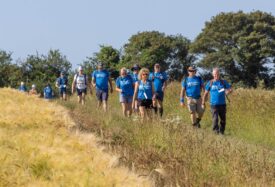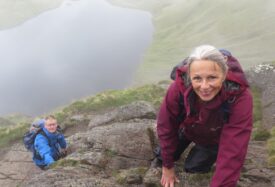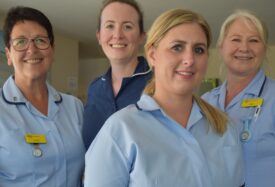The Blackbird Project hatches at Pilgrims Hospices
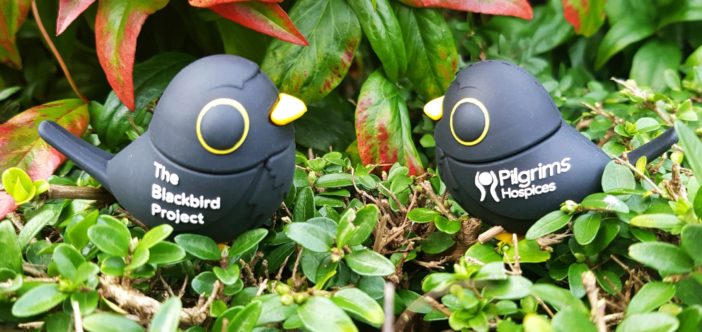
The blackbird’s voice is distinguishable, just like those of our loved ones. Imagine being able to hear their voices when they’re no longer here.
In the days of multimedia, everyone appears to be making videos or sharing memories via Instagram, Facebook or any other number of apps. It’s easy to believe that there is always a recording, somewhere, of our loved ones. That isn’t always the case. Occupational Therapist Julie Cox, who works at Pilgrims Hospice Thanet, became aware that bereaved families often wanted a recording of the voice of their loved one. After phone lines and contracts are cancelled, people often find that they no longer have access to listen to their loved ones’ voice.
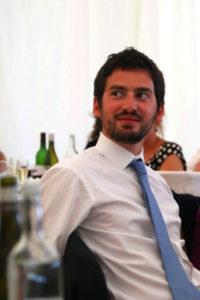
Simultaneously, at Pilgrims Hospice Canterbury, Sheena and Nick Jackaman were saying the same thing. They had recently lost their son Ben in 2017, aged 34. He was a highly creative individual working in graphic design and had a gift for music. Together with Ben’s sister, Anna, they suddenly realised that they had many photographs of Ben but no recordings of him (since childhood) speaking or playing his guitar. There were some days when they would have loved to listen to him, talking about anything, just to give them some comfort.
Ben’s family and friends had raised money in his memory and wanted a legacy project, where they felt that they could help others who were facing similar challenges in their bereavement. Through conversations with Pilgrims, it became obvious that there was a project just waiting to happen; plans to launch The Blackbird Project were hatched.
From Spring 2019, there will be trained Blackbird Project facilitators at each hospice and in the community, where the charity delivers its services in patients’ homes. The facilitators will learn how to work with patients to record messages, poems, thoughts, recipes, details of their favourite music or anything that the patient would like to say. The charity wants to give its patients the opportunity to share their voice and enable them to leave vocal memories for family and friends. After recording, these memory messages will be downloaded onto a little blackbird-shaped USB stick and given to the person who the patient has nominated. With the patients written permission, Pilgrims will keep the track securely for one year so that if the family want multiple copies, they will be able to provide this.
You were only waiting for this moment to arise.Blackbird, Paul McCartney
There are multiple reasons why the project got its name. In folklore, the blackbird is the first bird to sing in the dawn chorus and the last bird singing as night falls. Its call is distinctive and is instantly recognisable; it is considered to have magical qualities and the ability to flit between different worlds.
Ben Jackaman’s parents, Sheena and Nick, bought The Beatles White Album in 1968 and it became a favourite with all the family. Ben use to sing and play Blackbird, and he performed it for them the Christmas before he was diagnosed with cancer. The family have a very tame blackbird that visits them at their home in Kent, and throughout Ben’s time at Pilgrims they were frequently visited by a blackbird who would sing outside the conservatory, where he loved to spend time. Ben is laid to rest in a Kent village churchyard where all the birds gather and sing. The blackbird is always present.
The Blackbird Project will now digitally capture the distinct voices of loved ones, enabling these voices to be present in the morning, the evening and even at 3am… whenever families and friends want to hear their voice.
